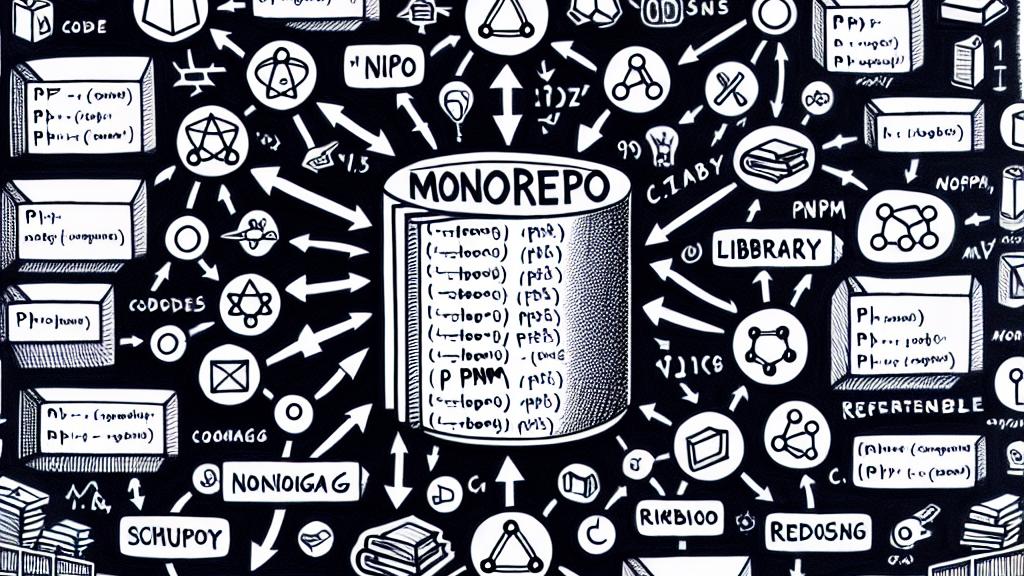Unlocking the Power of pnpm 9.5: Mastering Dependencies in Monorepos with Catalogs!
Overview
- Understanding Catalogs: A key feature in pnpm 9.5 designed for unified dependency management.
- Benefits of Using Catalogs: Prevents bugs from duplicate packages and simplifies the dependency upgrade process.
- Streamlining Monorepos: An effective approach to manage package dependencies across multiple applications efficiently.

Introduction to Catalogs
With the release of pnpm 9.5 in Japan, the introduction of Catalogs marks a significant step in enhancing how developers handle dependencies within monorepos. Catalogs allow developers to create reusable definitions for dependency versions in the pnpm-workspace.yaml file. For instance, a team can specify React's version as ^18.3.1, which all projects in the monorepo can reference, ensuring that every application utilizes the same library version. This consistency mitigates version conflicts and streamlines cross-project collaborations, demonstrating an evolution in managing dependencies in large-scale applications.
Motivations Behind Catalogs
The primary motivation for employing Catalogs in a monorepo environment centers on the need for consistency and reliability. By maintaining a single version of dependencies, teams can prevent errors that arise from having multiple versions of the same library in different projects. Moreover, Catalogs enable developers to perform upgrades more efficiently; updates can be made in one place—the pnpm-workspace.yaml file—removing the cumbersome task of altering each package.json file. This centralized approach not only reduces the risk of merge conflicts in version files but also enhances overall team productivity. In summary, Catalogs empower developers to focus more on coding rather than resolving dependency issues.
Application and Challenges
Despite the clear benefits, the implementation of Catalogs does present challenges. Coordinating simultaneous updates requires strong communication and collaboration among team members, as any version misalignment can lead to compatibility issues. Additionally, teams must adapt to the structured approach that Catalogs necessitate, which may require a cultural shift in how they manage their dependencies. However, the advantages far outweigh these challenges. The ability to ensure that all applications rely on the same library versions boosts confidence and stability as the organization expands its software offerings. With Catalogs, pnpm elevates itself from a simple package manager to a vital tool for fostering efficient, scalable development practices.
Conclusion: The Future of pnpm and Its Role in Software Development
The addition of Catalogs within pnpm 9.5 is a groundbreaking advancement for managing dependencies in monorepos effectively. As organizations increasingly adopt monorepo strategies, tools that provide streamlined dependency management will prove invaluable. Future enhancements may introduce automated processes for conflict resolution and intelligent dependency recommendations, further solidifying pnpm's essential role in cutting-edge development environments. By integrating Catalogs, development teams not only enhance their immediate productivity but also set the groundwork for innovative practices that will drive software development forward. Embracing these changes is crucial for developers aiming to thrive in an ever-evolving tech landscape.
Exploring Best Practices with Catalogs
Adopting Catalogs effectively requires understanding best practices in managing shared dependencies. Teams should consider establishing a well-defined structure within their pnpm-workspace.yaml to facilitate easier navigation and updates. Additionally, regular communication, such as scheduled sync-ups to discuss dependency updates, can enhance coordination among team members. Leveraging tools like linting or dependency checkers can further ensure that all projects are adhering to the specified catalog entries. As pnp's capabilities enhance, these practices will bolster the reliability of software deployments and allow teams to respond swiftly to evolving project requirements.

Loading...